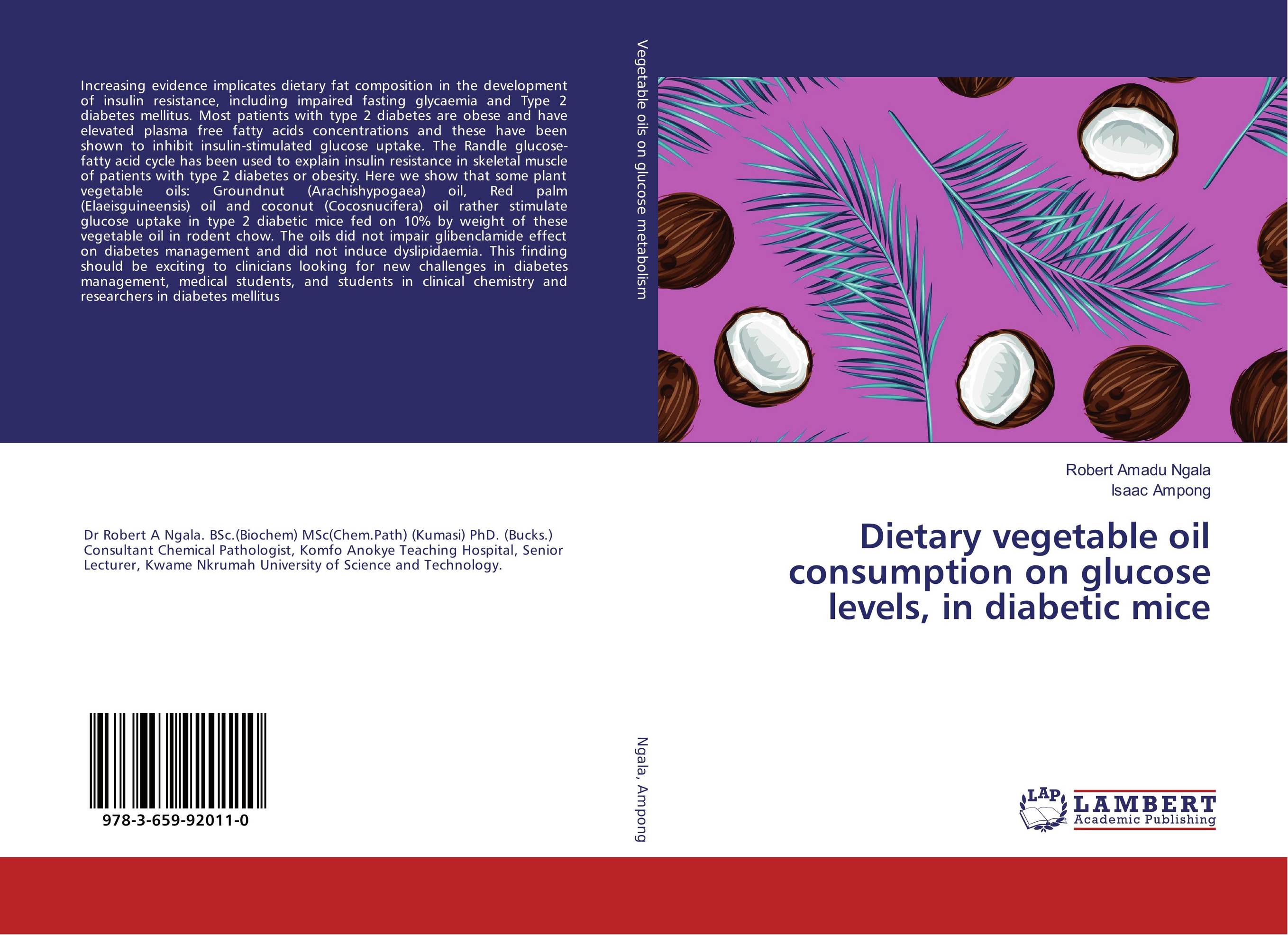| Поиск по каталогу |
|
(строгое соответствие)
|
- Профессиональная
- Научно-популярная
- Художественная
- Публицистика
- Детская
- Искусство
- Хобби, семья, дом
- Спорт
- Путеводители
- Блокноты, тетради, открытки
Dietary vegetable oil consumption on glucose levels, in diabetic mice.

В наличии
| Местонахождение: Алматы | Состояние экземпляра: новый |

Бумажная
версия
версия
Автор: Robert Amadu Ngala and Isaac Ampong
ISBN: 9783659920110
Год издания: 2016
Формат книги: 60×90/16 (145×215 мм)
Количество страниц: 112
Издательство: LAP LAMBERT Academic Publishing
Цена: 21668 тг
Положить в корзину
| Способы доставки в город Алматы * комплектация (срок до отгрузки) не более 2 рабочих дней |
| Самовывоз из города Алматы (пункты самовывоза партнёра CDEK) |
| Курьерская доставка CDEK из города Москва |
| Доставка Почтой России из города Москва |
Аннотация: Increasing evidence implicates dietary fat composition in the development of insulin resistance, including impaired fasting glycaemia and Type 2 diabetes mellitus. Most patients with type 2 diabetes are obese and have elevated plasma free fatty acids concentrations and these have been shown to inhibit insulin-stimulated glucose uptake. The Randle glucose-fatty acid cycle has been used to explain insulin resistance in skeletal muscle of patients with type 2 diabetes or obesity. Here we show that some plant vegetable oils: Groundnut (Arachishypogaea) oil, Red palm (Elaeisguineensis) oil and coconut (Cocosnucifera) oil rather stimulate glucose uptake in type 2 diabetic mice fed on 10% by weight of these vegetable oil in rodent chow. The oils did not impair glibenclamide effect on diabetes management and did not induce dyslipidaemia. This finding should be exciting to clinicians looking for new challenges in diabetes management, medical students, and students in clinical chemistry and researchers in diabetes mellitus
Ключевые слова: Coconut oil, glibenclamide, Palm Oil, Type 2 diabetes mellitus, Groundnut oil



